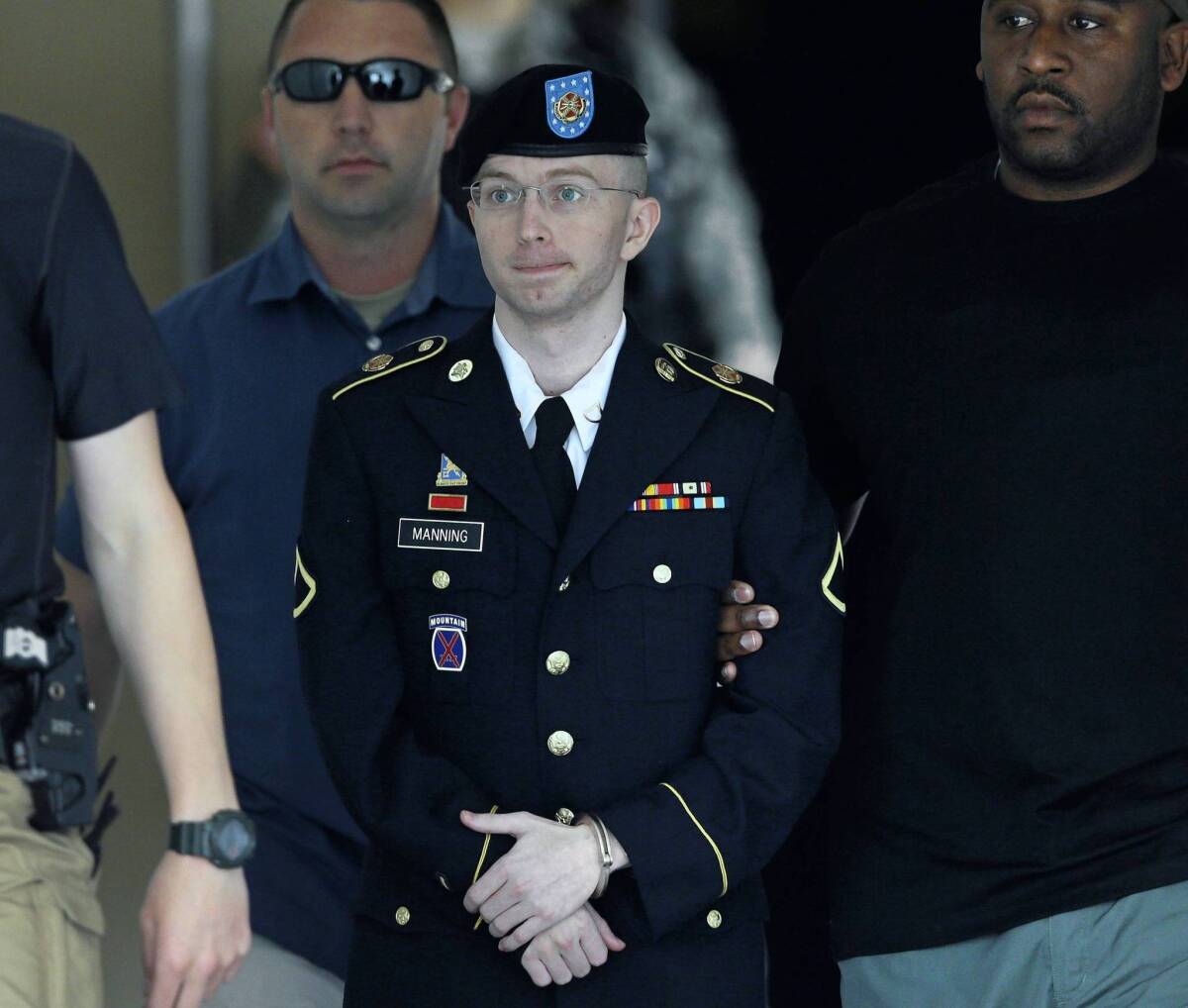Defense seeks lighter sentence for Bradley Manning in WikiLeaks case

FT. MEADE, Md. — Lawyers for Army Pfc. Bradley Manning sought to convince a military judge Monday to give him less than the maximum prison term, arguing that the former intelligence analyst was mentally unstable and that his commanders should not have sent him to Iraq.
Manning, who was convicted last month of espionage and mishandling classified data for leaking 700,000 military and diplomatic cables and other classified materials to the anti-secrecy website WikiLeaks, faces up to 90 years in prison. His lawyers opened their case Monday in the sentencing phase of the court-martial in hopes of getting a shorter term.
Manning is likely to address the judge, Army Col. Denise Lind, on Wednesday — either by testifying on the stand, which would open him to cross-examination by prosecutors, or by reading a statement in court.
Several defense witnesses portrayed Manning, 25, as confused, angry and overwhelmed. They suggested he should have been transferred out of Iraq after he flipped a table during a meeting with a superior and later reached for a weapon during a counseling session.
Their first witness was Army Col. David Miller, who oversaw Manning’s deployment from Ft. Drum, N.Y., to Iraq in late 2009. Miller conceded that some officers in Manning’s chain of command were “less than average” and “mediocre,” and were removed from their commands.
He also said about 25 soldiers were ordered to undergo mental health evaluations because of combat-related stress. Miller said 16 were approved for transfer out of Iraq, and two committed suicide.
Miller said he met Manning several times, mostly when Manning briefed commanders on intelligence updates. “My impression was that he seemed pretty squared away,” Miller said. “Articulate. And he had a pretty good understanding of the information he had.”
But Miller said he did not know Manning had angrily turned over a table during a heated conversation with a superior or that he “had to be restrained from reaching for a weapon” during a counseling session.
Maj. Elijah Dreher, Manning’s headquarters’ company commander, said he was not informed about Manning’s problems. He recalled Manning telling him he wanted to go to college and join the officer corps, a sign Dreher took that Manning was well-adjusted.
Retired Maj. Clifford Clausen said the command was “having problems” finding enough intelligence analysts for Iraq, and that Manning was deployed despite an “anger issue” where “he got mad and displayed a violent tendency.” He said Manning knew he “didn’t get along with people” and had asked for help “for his issues.”
Capt. Michael Johnson said Manning was tardy and inattentive and had “crossed the line” of proper behavior.
Capt. Matthew Freeburg called the table incident an assault. He transferred Manning to the supply section and referred him for counseling. He said a mental health expert concluded that Manning, then secretly gay, had “some deeper issues than what the Army can fix right now” and supervisors began to consider discharging him.
“I was shocked more action wasn’t taken,” Freeburg said.
Earlier this month, prosecutors defended their request for the maximum sentence, presenting evidence and testimony in closed sessions to describe the damage they say Manning did to national security.
Manning was convicted July 30 on six counts of violating the Espionage Act and other offenses. He initially faced up to 136 years in prison, but Lind later determined some counts were duplicative and cut the maximum to 90 years.
More to Read
Start your day right
Sign up for Essential California for news, features and recommendations from the L.A. Times and beyond in your inbox six days a week.
You may occasionally receive promotional content from the Los Angeles Times.







